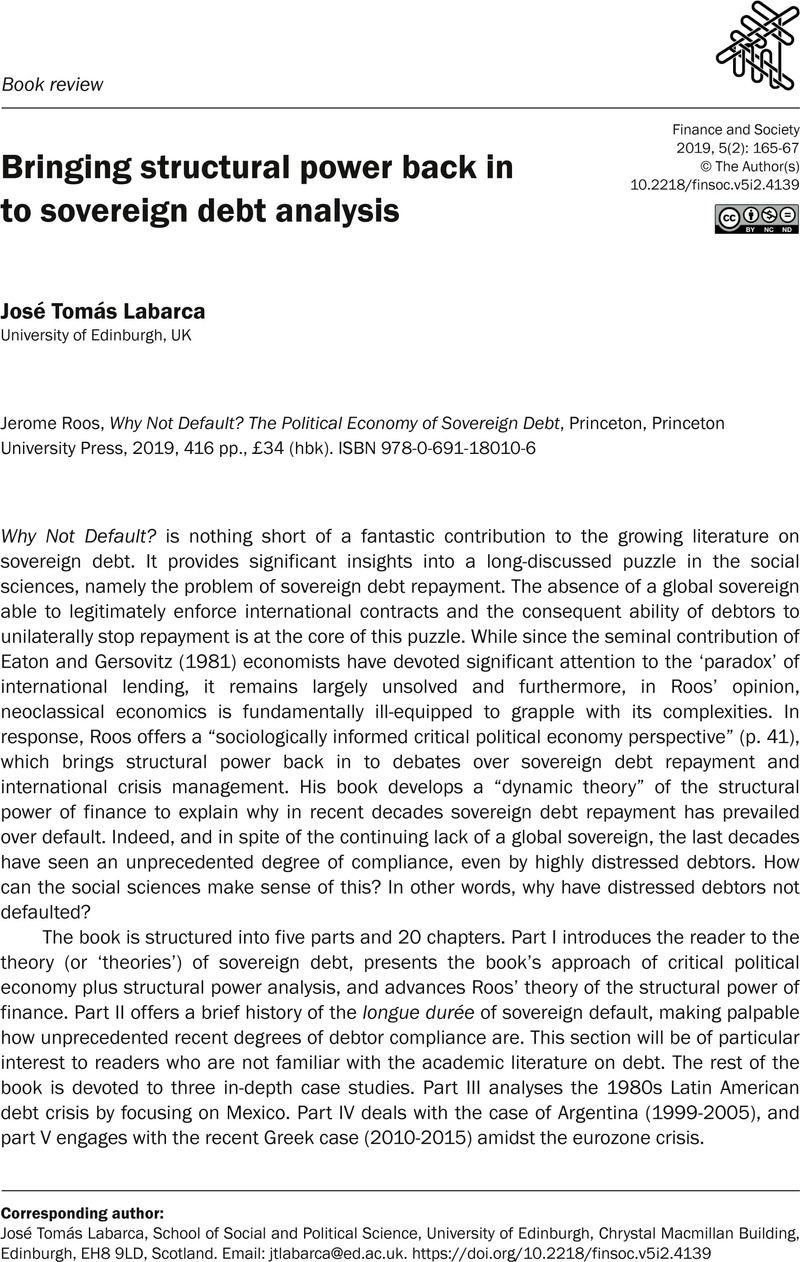No CrossRef data available.
Article contents
Bringing structural power back in to sovereign debt analysis - Jerome Roos, Why Not Default? The Political Economy of Sovereign Debt, Princeton, Princeton University Press, 2019, 416 pp., £34 (hbk). ISBN 978-0-691-18010-6
Review products
Jerome Roos, Why Not Default? The Political Economy of Sovereign Debt, Princeton, Princeton University Press, 2019, 416 pp., £34 (hbk). ISBN 978-0-691-18010-6
Published online by Cambridge University Press: 09 November 2023
Abstract
An abstract is not available for this content so a preview has been provided. As you have access to this content, a full PDF is available via the ‘Save PDF’ action button.

- Type
- Book review
- Information
- Creative Commons
- This is an Open Access article, distributed under the terms of the Creative Commons Attribution-NonCommercial-No Derivatives licence (http://creativecommons.org/licenses/by-nc-nd/4.0/), which permits noncommercial re-use, distribution, and reproduction in any medium, provided the original work is unaltered and is properly cited. The written permission of Cambridge University Press must be obtained for commercial re-use or in order to create a derivative work.
- Copyright
- © 2019 The Author(s)
References
Block, F. (1977) The ruling class does not rule: Notes on the Marxist theory of the state. Socialist Revolution, 33(6): 6–28.Google Scholar
Cardoso, F.H. and Faletto, E. (1979) Dependency and Development in Latin America. Berkeley, CA: University of California Press.CrossRefGoogle Scholar
Eaton, J. and Gersovitz, M. (1981) Debt with potential repudiation: Theoretical and empirical analysis. Review of Economic Studies, 48(2): 289–309.CrossRefGoogle Scholar




